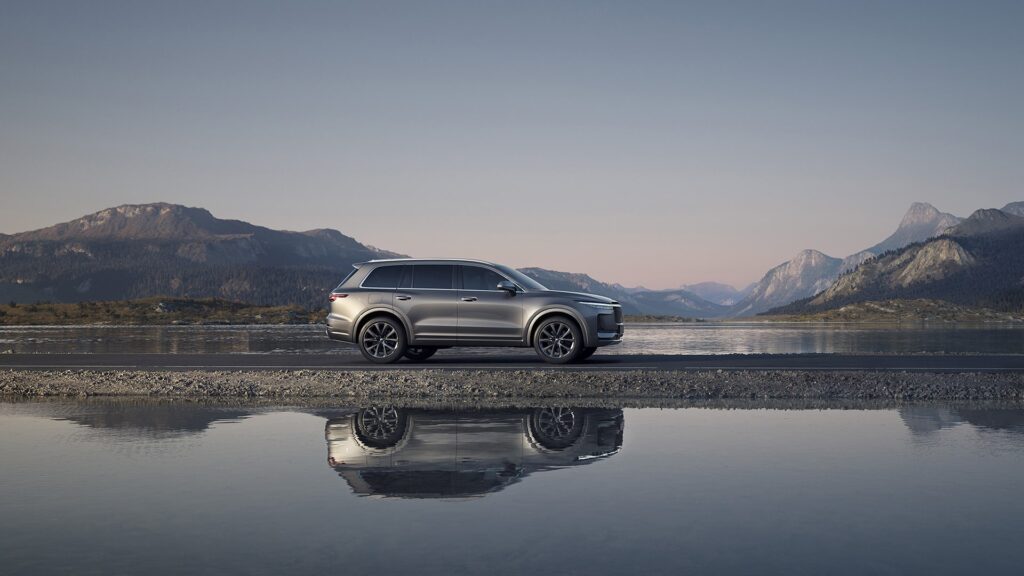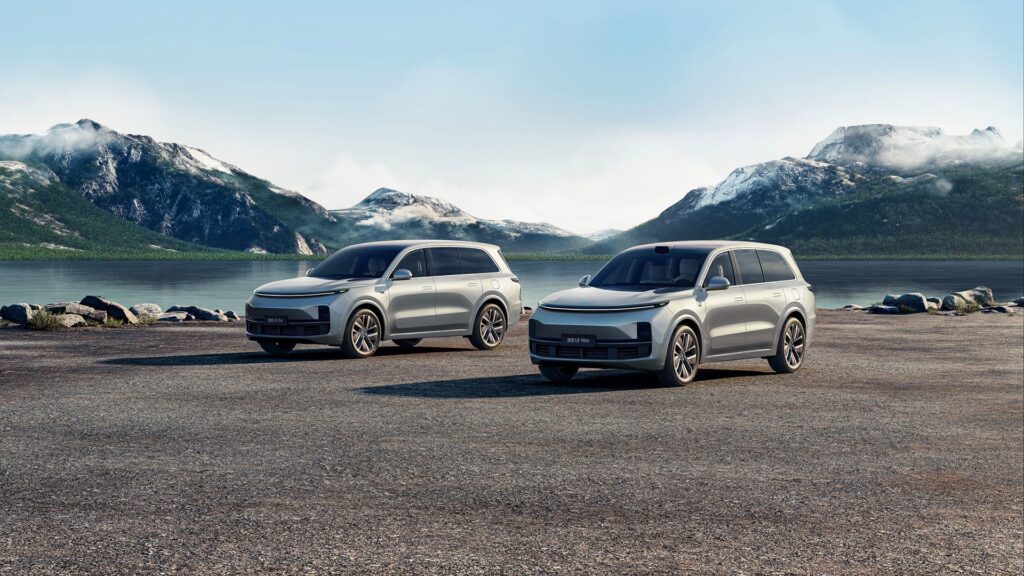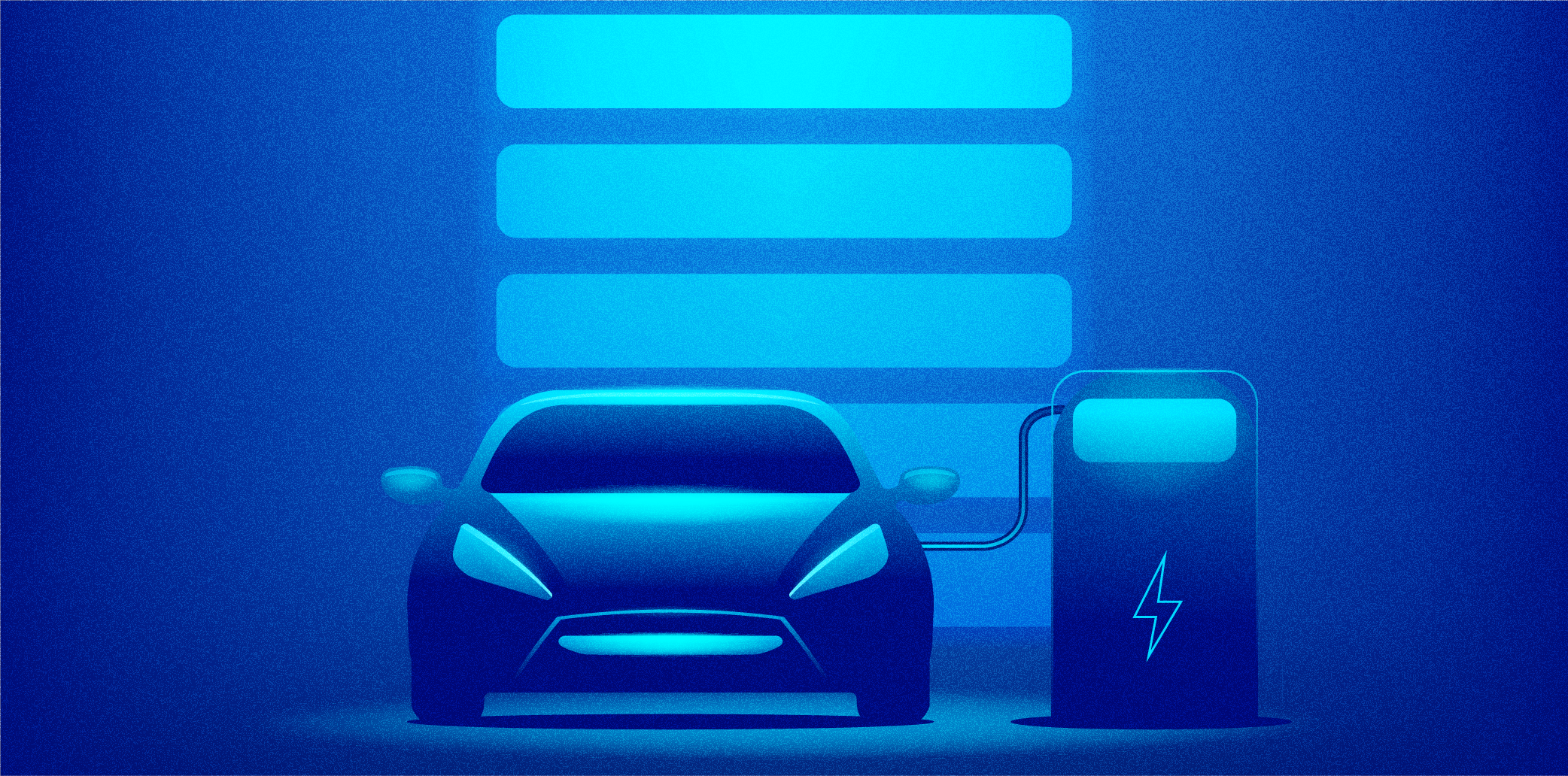On January 11, Li Auto announced that its extended-range L-series models—L7, L8, and L9—would undergo configuration updates, with the 2024 models set to be released and delivered in March. Regarding the 2023 models, the Chinese automaker opted for a New Year’s promotional strategy to lower prices. According to information obtained from the supply chain by 36Kr, production of the 2023 L7, L8, and L9 models will officially cease in the second quarter.
This major overhaul of models holds significant significance for Li Auto. The previous redesign of the Li Auto One in 2021 and its discontinuation in 2022 had sparked dissatisfaction among existing car owners, impacting both its reputation and sales. Now, with cumulative sales of over 420,000 units and monthly sales exceeding 50,000 units, the L-series has a broader user base. If the pace of the redesign is not well-managed, there might be more significant fluctuations in sales.
Moreover, Li Auto has set an ambitious goal of achieving 800,000 sales by 2024, doubling the 2021 sales of 376,000 units. This implies that the L-series needs to maintain a monthly sales momentum of over 50,000 units, with electric models responsible for achieving the remaining targets.
Following these three redesigned models, Li Auto will also release two new models—the extended-range L6 and the all-electric flagship Mega MPV—in the first half of 2024. In the second half of the year, three more all-electric models are planned. A misstep in the redesign could potentially affect the pacing of these subsequent new models.
To ensure a smooth transition during the model upgrade, Li Auto has included a buffer of two months between the announcement of the news and the delivery of the redesigned models. The company’s commitment to stabilizing sales is evident.
Urgent measures and price reductions
Redesigning models often tests a car company’s ability to manage the tempo of its product transitions, and new players in the industry have stumbled at this hurdle. In May 2021, Li Auto released the Li One without informing users in advance about another new model in the pipeline, causing a backlash. An internal source told 36Kr that Li Xiang, CEO of Li Auto, expressed regret during an internal brand training session. He said, “This decision harmed users. I regret it—if given another chance, I definitely wouldn’t do it this way.”
Therefore, during the second model redesign in September 2022, Li took to Weibo in advance, saying, “Don’t buy Li One if you’re currently waiting for the L8,” but did not officially announce it to users beforehand, and the sales side was also relatively lagging. The hasty discontinuation of Li One after the rushed launch of the newer L8 led to a group of Li One buyers becoming owners of discontinued cars, resulting in many potential consumers adopting a wait-and-see attitude.
Li Auto’s sales in August 2022 turned out to be only half of the previous month’s sales that had exceeded 10,000 units. The overall gross profit margin in the third quarter of that year also hit a record low of 12.7% since the company’s IPO.

To avoid repeating the same mistakes, Li Auto started planning for the model change earlier this time. According to 36Kr, Li Auto initiated car purchase promotions in the fourth quarter of 2023, offering early subsidies of over RMB 10,000 (USD 1,410).
However, a salesperson revealed that, with the official announcement of the redesigned model, the comprehensive discount for the 2023 models is quite substantial, starting at RMB 33,000 (USD 4,650). Taking the L7 as an example, with a starting price of RMB 319,800 (USD 45,140), the post-discount price starts at RMB 286,800 (USD 40,480).
The significant discount is not only due to compensation for the model change but also because Li Auto is facing an urgent situation with its order backlog. According to official data, Li Auto sold over 10,000 units per week in December 2023. However, in the first week of 2024, Li Auto’s weekly sales plummeted to 4,300 units.
Nonetheless, the 2024 models with updated configurations will be competitive. A car blogger mentioned that the 2024 L-series models are expected to use the Qualcomm Snapdragon 8295 chip for intelligent cabins, and the electric range is also expected to increase.
According to Li Auto’s “nested doll” car-making model, the aforementioned configurations for the new L6 model also have the potential to align with this year’s L7, L8, and L9 models. Additionally, Li Auto is trying to attract users by pushing to incorporate the advanced navigate-on-autopilot (NOA) feature.
However, in the competitive landscape of 2024, even if Li Auto actively manages its inventory, success is not guaranteed.

Facing off against high-end automakers
With the model change, pricing for Li Auto’s new cars has become a challenge. According to 36Kr, Li Auto’s average vehicle price has been decreasing. The company’s financial data shows that, in the fourth quarter of 2022, the average vehicle price was around RMB 430,000 (USD 60,700). However, by the fourth quarter of 2023, the average vehicle price dropped to RMB 347,000 (USD 48,980). Considering the price reduction for the model change, it becomes even more challenging for Li Auto to maintain an average vehicle price of RMB 350,000 (USD 49,410).
An insider at Li Auto told 36Kr that, given the economic backdrop, “internally there is a very clear understanding that market share is more important than gross profit margin.”
In other words, Li Auto might be planning more significant price changes to seize market share from high-end automaking brands like Mercedes-Benz, BMW, and Audi—which are colloquially referred to as BBA in China.
Currently, luxury vehicle brands, particularly BBA, still enjoy notable sales volumes. In 2023, BMW delivered 824,900 vehicles in China, Mercedes-Benz accumulated sales of 613,000 vehicles, and Audi’s cumulative sales for 2023 reached 665,000 vehicles. This is the result of the three companies making price concessions amidst the industry-wide price war in 2023. It is understood that the 2023 models of Mercedes-Benz, BMW, and Audi had varying degrees of price reductions last year. For example, the Audi Q5L, launched in March 2023 with a starting price of RMB 398,000 (USD 56,180), saw its latest whole vehicle price drop to RMB 299,000 (USD 42,210) after 10 months on the market, with a reduction of RMB 99,000 (USD 13,970).
While price reductions may seem crude, BBA has generally held its ground. If Li Auto wants to challenge BBA, it may need to show even more sincerity.
A more challenging opponent than BBA is the Aito brand with the backing of Huawei. Thanks to the strong sales of the new Aito M7 and streamlining of production processes, Aito delivered 12,000, 17,000, and 25,500 vehicles in October, November, and December 2023, respectively. Moreover, in the first week of 2024, Aito’s delivery volume of 5,900 units surpassed Li Auto’s 4,300 units for the first time.
Richard Yu (also known as Yu Chengdong), CEO of Huawei, shared in his private circle that the average selling prices of the Aito M5 and M7 are both over RMB 300,000 (USD 42,350), and the M9 costs over RMB 500,000 (USD 70,580). “This is just the beginning, and sustained growth is still ahead,” Yu was quoted as saying. Huawei and Aito have even greater momentum in 2024. Aito’s M5 facelift and the new M8 are already on the way. According to 36Kr, Huawei will operate around 800 HarmonyOS stores, built to support the company’s “Smart Selection” business model, by 2024. In terms of sales, Aito’s goal for this year is 600,000 units.
At a time when Li Auto and Huawei-backed Aito are challenging the stronghold of BBA, other Chinese automakers such as Nio, with its Alps sub-brand, and Xpeng Motors, featuring its G9 and P7 models, are also seeking to tap into the market.
The automotive market in 2024 resembles a foggy battlefield, where all players are spirited, yet cautious. Li Auto, previously unstoppable in 2023, is now confronting increased uncertainties. The model redesign at the beginning of this year marks only the opening move in Li Auto’s journey through the jungle of challenges.
KrASIA Connection features translated and adapted content that was originally published by 36Kr. This article was written by Li Anqi for 36Kr.

